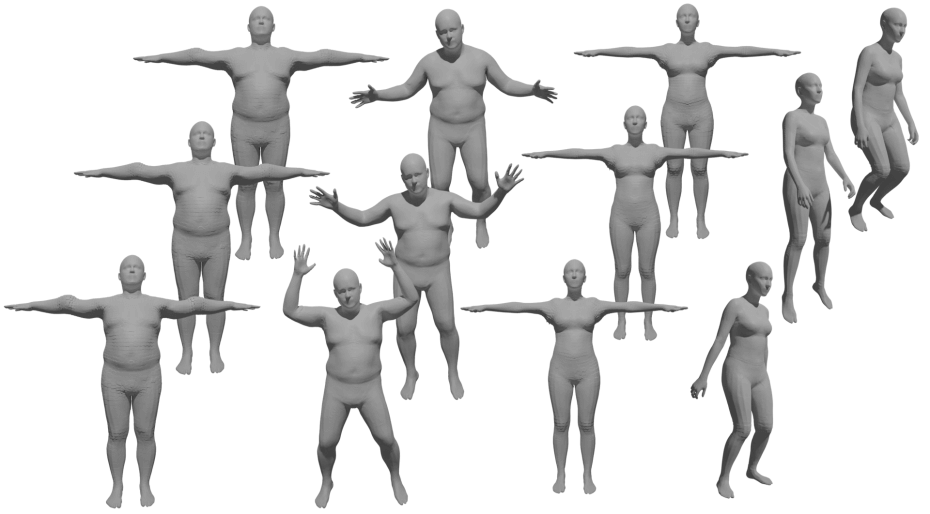
Abstract
Substantial progress has been made on modeling rigid 3D objects using deep implicit representations. Yet, extending these methods to learn neural models of human shape is still in its infancy. Human bodies are complex and the key challenge is to learn a representation that generalizes such that it can express body shape deformations for unseen subjects in unseen, highly-articulated, poses. To address this challenge, we introduce LEAP (LEarning Articulated occupancy of People), a novel neural occupancy representation of the human body. Given a set of bone transformations (i.e. joint locations and rotations) and a query point in space, LEAP first maps the query point to a canonical space via learned linear blend skinning (LBS) functions and then efficiently queries the occupancy value via an occupancy network that models accurate identity- and pose-dependent deformations in the canonical space. Experiments show that our canonicalized occupancy estimation with the learned LBS functions greatly improves the generalization capability of the learned occupancy representation across various human shapes and poses, outperforming existing solutions in all settings.